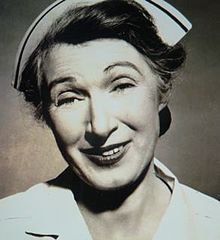
José Vicente Ferrer de Otero y Cintrón was a Puerto Rican actor and director of stage, film and television. He was one of the most celebrated and esteemed Hispanic American actors—or, indeed, actors of any ethnicity—during his lifetime and after, with a career spanning nearly 60 years between 1935 and 1992. He achieved prominence for his portrayal of Cyrano de Bergerac in the play of the same name, which earned him the inaugural Tony Award for Best Actor in a Play in 1947. He reprised the role in a 1950 film version and won an Academy Award for Best Actor, making him the first Hispanic actor and the first Puerto Rican-born to win an Academy Award.
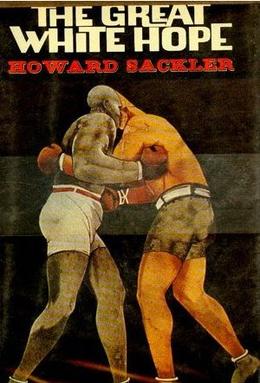
The Great White Hope is a 1967 play written by Howard Sackler, later adapted in 1970 for a film of the same name.

Donald Margulies is an American playwright and academic. In 2000, he won the Pulitzer Prize for Drama for his play Dinner with Friends.

Jo Van Fleet was an American stage, film, and television actress. During her long career, which spanned over four decades, she often played characters much older than her actual age. Van Fleet won a Tony Award in 1954 for her performance in the Broadway production The Trip to Bountiful, and the next year she won an Academy Award for Best Supporting Actress for her supporting role in East of Eden.
Lindsay Ann Crouse is an American actress. She made her Broadway debut in the 1972 revival of Much Ado About Nothing and appeared in her first film in 1976 in All the President's Men. For her role in the 1984 film Places in the Heart, she received an Academy Award nomination for Best Supporting Actress. Her other films include Slap Shot (1977), Between the Lines (1977), The Verdict (1982), Prefontaine (1997), and The Insider (1999). She also had a leading role in the 1987 film House of Games, which was directed by her then-husband David Mamet. In 1996, she received a Daytime Emmy Award nomination for "Between Mother and Daughter", a CBS Schoolbreak Special episode. She is also a Grammy Award nominee.

Frances Goodrich was an American actress, dramatist, and screenwriter, best known for her collaborations with her partner and husband Albert Hackett. She received the Pulitzer Prize for Drama with her husband in 1956 for The Diary of Anne Frank which had premiered the previous year.
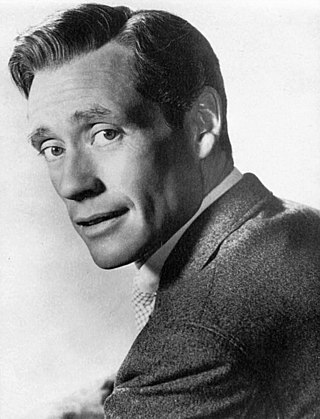
Melchor Gastón Ferrer was an American actor and filmmaker. He achieved prominence on Broadway before scoring notable film hits with Scaramouche, Lili, and Knights of the Round Table. He starred opposite his wife, actress Audrey Hepburn, in War and Peace and produced her film Wait Until Dark. He also acted extensively in European films and appeared in several cult hits, including The Antichrist (1974), The Suspicious Death of a Minor (1975), The Black Corsair (1976), and Nightmare City (1980).

John Guare is an American playwright and screenwriter. He is best known as the author of The House of Blue Leaves and Six Degrees of Separation.
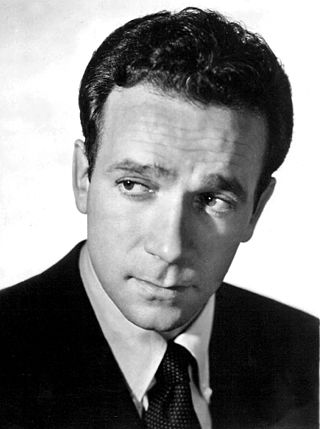
Dane Clark was an American character actor who was known for playing, as he labeled himself, "Joe Average."
Margaret "Maggie" Edson is an American playwright. She is a recipient of the 1999 Pulitzer Prize for Drama for her play Wit. She has been a public school teacher since 1992.

State of the Union is a play by American playwrights Russel Crouse and Howard Lindsay about a fictional Republican presidential candidate.
Joseph A. Kramm was an American playwright, actor, and director. He received the Pulitzer Prize for Drama in 1951 for his play The Shrike, later adapted into a motion picture of the same title in 1955. His wife, stage actress Isabel Bonner, died of a brain hemorrhage while performing his play in 1955.
The Gin Game is a two-person, two-act play by Donald L. Coburn that premiered at American Theater Arts in Hollywood in September 1976, directed by Kip Niven. It was Coburn's first play, and the theater's first production. The play won the 1978 Pulitzer Prize for Drama.

Ketti Frings was an American writer, playwright, and screenwriter who won a Pulitzer Prize in 1958.

The Shrike is a 1955 American film noir drama film based on Joseph Kramm's play of the same name. José Ferrer directed and starred in Ketti Frings' screenplay adaptation.
They Knew What They Wanted is a 1924 play written by Sidney Howard. The play premiered on Broadway in 1924 and had three Broadway revivals as well as a London production.
In Abraham's Bosom is a play by American dramatist Paul Green. He was based in North Carolina and wrote historical plays about the South.
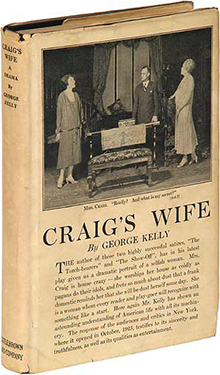
Craig's Wife is a 1925 play written by American playwright George Kelly. It won the 1926 Pulitzer Prize for Drama, and has been adapted for three feature films.
Idiot's Delight is a 1936 Pulitzer-Prize-winning play written by American playwright Robert E. Sherwood and presented by the Theatre Guild. The play takes place in the Hotel Monte Gabriel in the Italian Alps during 24 hours at the beginning of a world war. The guests trapped in the hotel by the sudden onset of hostilities are from Germany, France, the United States and Britain. Directed by Bretaigne Windust, the cast starred Alfred Lunt and Lynn Fontanne (Irene), with Sydney Greenstreet as Dr. Waldersee and Francis Compton as Achille Weber. The play was nominated for the 1936 New York Drama Critics' Circle Award, Best American Play.

Isabel Bonner was an American stage actress.
